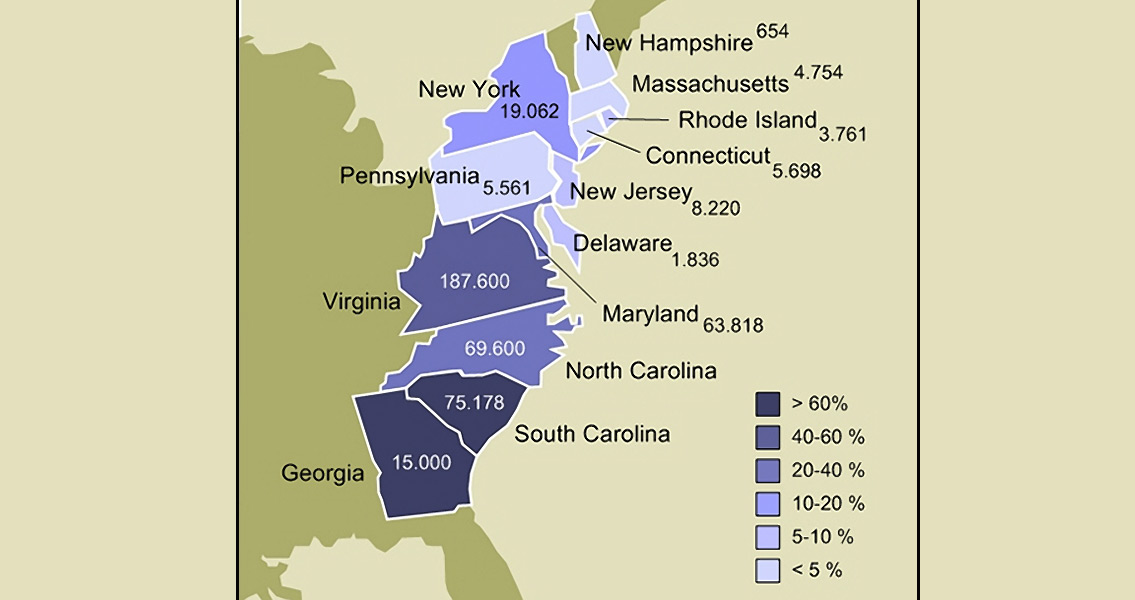<![CDATA[Jupiter Hammon delivered his speech 'An Address to the Negroes in the State of New York' to the African Society of New York City on 24th September, 1787. The timing and content of Hammon's speech make it a key, if controversial moment in the development of black campaigns for equality, and the formation of the movement to abolish slavery in the United States. On the one hand, the speech is a collection of Christian advice to black slaves, recommending obedience, honesty and faithfulness to masters and owners. "Now whether it is right, and lawful, in the Sight of God, for them to make slaves of us or not, I am certain that while we are slaves, it is our duty to obey our masters, in all their lawful commands, and mind them unless we are bid to do that which we know to be sin, or forbidden in God’s word." On the other hand, Hammon's speech also engaged with the complex relationships at play behind the institution of slavery, making a sophisticated, balanced assessment of it. "Now I acknowledge that liberty is a great thing, and worth seeking for, if we can get it honestly, and by our good conduct, prevail on our masters to set us free: Though for my own part I do not wish to be free, yet I should be glad, if others, especially the young negroes were to be free, for many of us, who are grown up slaves, and have always had masters to take care of us, should hardly know how to take care of ourselves; and it may be more for our own comfort to remain as we are." Jupiter Hammon's address pointed to the inherent injustice in US society in the aftermath of independence, but argued that change would have to be a gradual affair. In his eyes, immediately outlawing slavery and liberating those in bondage would have created as many problems as it solved, economically, socially, and politically. The very existence of Hammon's speech makes it a key landmark in the history of African-Americans' fight for emancipation and ultimately, equality. It is one of the first examples of an African-American initiating a public discussion of the dominant issue of the time. As such, it represented the increasing visibility and acceptance of African-Americans as a key political force in American society, and the increasing distinction of their cultural identity. Hammon was born into slavery in October 1711. Throughout his life he served the Lloyd family in Queens, New York. Although his father, Obadiah, was a slave of the family who had repeatedly tried to escape, Jupiter Hammon was given the chance to attend school and recieve a formal education. This opportunity allowed Hammon to develop a deep understanding of the Bible, key to his development as a cultural figure. The family's comparatively good treatment of Hammon could also explain his moderate attitude when it came to abolishing slavery. A gifted writer, Hammon was the first black poet to be published in America when his 1760 poem "An Evening Thought. Salvation by Christ with Penitential Cries," was released as a broadside. He is widely considered one of the most important figures in the development of African American Literature in the United States, helping lay the foundations of black culture in America. Hammon's speech on 24th September, 1786, seems comparatively conservative in the grand scheme of the movement for emancipation. It called for a gradual liberation of the United States' slaves, and relied heavily on theological arguments to bring the institution into question. Coming just a short time after the War of Independence however, it's a key example of the beginnings of a crucial debate which would shape American history over the next century. Image courtesy of Wikimedia Commons user: Stilfehler]]>
Jupiter Hammon Delivers Landmark Speech on Slavery
